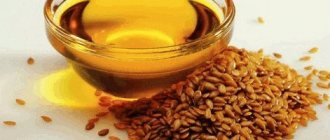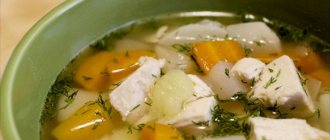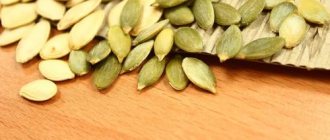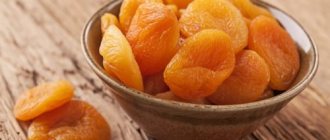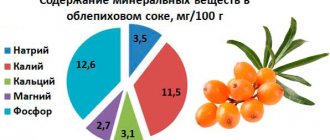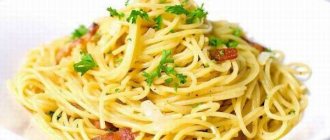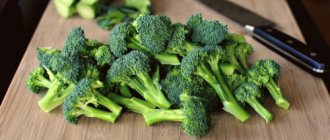In case of pathology of the digestive tract, the quality of food consumed is extremely important. It is vital for patients with diagnosed pancreatitis to adhere to a strict diet. With the development of a pathological process in the pancreas, the production of necessary enzymes decreases or stops, without which the normal functioning of the body is disrupted. Habitual foods have to be excluded from the diet.
Patients often ask the question whether it is allowed to add butter to the patient’s diet. The answer depends on the stage of the pathological process and the patient's condition. During the period of exacerbation of the disease, the specified animal product will have to be excluded from the diet. After the exacerbation is relieved and the pain syndrome is relieved, after a certain time, small amounts of the product are allowed to be introduced into the diet. It is not advisable to completely abandon the presence of butter in food if you have pancreatitis. With the right approach, the product brings considerable benefits to the body.
What are the benefits of butter?
The mentioned natural product, consumed in reasonable quantities, contains an abundance of useful substances. Due to the high content of oleic acid in the oil, digestion and digestion of fats in the intestines are normalized.
Milk fat contains antioxidants that protect cell walls. Vegetable fats are also filled with similar substances. Therefore, olive oil for pancreatitis is included in the list of dietary products. The substances contained in the composition restore cell walls and trigger regenerative processes in the pancreas. Consumption of olive and sunflower fats is allowed when the disease enters the remission stage.
In the acute stage of the disease, eating fatty foods is strictly contraindicated. It is allowed to add to the diet when a month has passed from the date of improvement. It is permissible to eat fats in the form of dressings for cereals or soup. If the patient has loose, repeated stools with a characteristic oily sheen, it is too early to consume the component.
It is allowed to start eating oil with half a tea boat per meal. If the patient’s well-being does not worsen, gradually increase the daily dose of the product to a tablespoon.
Features of use
For pancreatitis, sunflower oil can be gradually introduced into the patient’s menu, but only after permission from the attending physician. You must ensure that it is fresh.
In acute form
In acute forms of the disease, sunflower oil can be taken after a fasting diet, but only if the body digests food well. The refined product is added to prepared vegetable puree, soup or porridge. You can start with 0.5 tsp, gradually increase the amount, but its dosage should not exceed 15 g per day.
We recommend reading: Is it possible or not to have pasta for pancreatitis?
In the chronic stage
Patients with chronic pancreatitis should carefully select foods that do not contain artificial additives. Sunflower oil is a common product during this period. But in order not to provoke an exacerbation of the disease, you should not take more than 2 tbsp. l. per day.
Vegetable fat contains antioxidants that improve the digestion process.
You can prepare dishes with refined or unrefined product, but frying with it is not allowed. Fat is added to soups, porridges, and can be used to season vegetable salads.
During exacerbation of the disease
During the period of exacerbation of pancreatitis, sunflower oil should not be consumed, since its components can intensify destructive processes in the inflamed pancreas. During an exacerbation, the patient is advised to adhere to complete fasting for several days.
During an exacerbation, the patient is advised to adhere to complete fasting for several days.
During remission
During remission, sunflower oil may be present in the diet of a patient with pancreatitis; it is allowed to be used occasionally even during cooking. But we must not forget that heat treatment destroys its beneficial properties.
In order for this product to be better absorbed by the body, it must be thoroughly mixed with protein foods. During this period, it is allowed to consume up to 30 g (2 tablespoons) of sunflower oil per day, but it must be evenly distributed over several doses. You can drink 1 tsp in the morning. substances to soothe painful sensations. Consuming sunflower oil in consultation with your doctor will quickly get rid of pathology in the pancreas.
Use for pancreatitis
Butter is well absorbed for pancreatitis. But it contains an excessive amount of cholesterol, which negatively affects the condition of the digestive tract and pancreas. For the stated reason, the consumption of animal fats is strictly limited.
To prevent the use of oil from causing negative consequences for the patient, eat the product correctly. Strong recommendations:
- Consumption is allowed if the patient does not complain of nausea and abdominal pain.
- It is not recommended to eat more than 10 grams of product at a time. The daily dose does not exceed 25 grams, divided into separate doses.
- The butter may only be eaten in a melted, warm state. Porridge or vegetable purees are seasoned with fat.
- Before use, cut off the oxidized yellowed areas from the piece. A large piece is stored in the refrigerator in a closed butter dish.
Chronic pancreatitis
During the days of remission during the recovery stage, eating butter and sunflower oil is beneficial. The substances contained in the product speed up recovery. It is important not to overdo it and strictly adhere to the permissible dose of the product.
Acute pancreatitis
The acute stage of the inflammatory process of the pancreas requires adherence to a strict diet. On the first day, the patient is advised to completely abstain from food and water. During this time, any oil – butter, vegetable – is strictly prohibited. It is allowed to introduce the product into the diet after a month after the condition begins to improve.
Sunflower oil in the acute phase of pancreatitis
Any fat stimulates the secretion of pancreatic juice, saturated with enzymes, which in the acute period of any pancreatitis aggravate the destructive processes in the inflamed gland. However, the body cannot exist without fats; they are necessary for the construction of cell membranes, the preservation of nerve fiber sheaths, the formation of many hormones, etc. In addition, vegetable fats serve as a source of a number of essential substances.
Therefore, vegetable oil is present in the diet of patients with the acute phase of pancreatitis. But it is introduced into the diet not immediately after the phase of forced hunger, but after it becomes clear that the patient’s body copes satisfactorily with protein and carbohydrate foods. Refined oil is added to ready-made warm vegetable purees or porridges in an amount of 5–15 g/day. After stable improvement and expansion of the diet, the permissible daily dose of sunflower oil is increased to 10–15 g.
What kind of oil can you eat?
In the remission stage of chronic pancreatitis, olive or natural butter is considered useful. Unfortunately, we have to admit that there are a lot of substitutes and spreads on store shelves. Patients with pancreatitis need to carefully select products. The greatest harm to the pancreas is caused by artificial additives, which are found in abundance in factory-produced products.
Below are the features to consider when purchasing oil:
- Only products with a fat content of over 70% are classified as natural. The optimal solution would be to purchase oil with a fat content of 82%. This product does not contain emulsifiers or refractory plant components.
- Natural oil is wrapped in foil to protect it from oxidation. Give preference to a similar product.
- When purchasing, pay attention to the quality of packaging and storage conditions of the product.
- Natural oils contain the following terms in their names: “peasant”, “amateur”, “butter”. Other oils contain foreign additives.
- The main component of the product is pasteurized cream.
Sunflower oil in remission phase
The onset of remission of pancreatitis allows:
- use sunflower oil during cooking;
- include unrefined oil in your diet;
- slightly increase its quantity.
The criterion for the possibility of all these dietary “indulgences” should be individual tolerance. Due to the choleretic effect, patients with cholelithiasis should treat sunflower oil with special care and caution. It is better to divide the entire daily amount of oil evenly into several doses throughout the day. To improve absorption when consuming sunflower oil, you should carefully mix it with protein foods.
In addition, even in remission, it is recommended to avoid heat treatment of sunflower oil as much as possible. After all, this transforms beneficial fatty acids (they protect against atherosclerosis, maintain the elasticity of blood vessels, and prevent fat deposits in internal organs) into trans-isomers. The latter irreversibly lose many of the healing biological qualities of their predecessors.
What other fats can you eat?
In addition to butter, you are allowed to eat a number of vegetable oils. Choose with great care. It is not recommended to eat sea buckthorn fruit products for pancreatitis. Sea buckthorn oil has a laxative effect, harmful for diseases of the pancreas.
If a patient has a digestive system disorder, it is useful to eat flaxseed oil daily. This type of vegetable fat improves healing processes in the digestive tract. Flax seeds contain many active elements that normalize the secretory activity of the pancreas and stimulate regeneration processes.
To improve digestive processes, add small doses of olive oil to your diet. Gastroenterologists recommend taking it for pancreatitis. Olive oil can be added to food, this improves the secretory activity of the gland.
Before introducing any type of vegetable fat into your diet, consult your doctor so as not to worsen the condition instead of healing.
Benefits and harms
Sunflower oil is obtained by processing sunflower seeds. Depending on the method of technological processing, it can be refined or unrefined. This product contains vitamins and a large number of useful components. It contains various fatty acids necessary for the body to form tissues and cells. The sunflower product also contains a lot of useful substances such as proteins, carbohydrates, minerals and trace elements.
The oil normalizes digestive processes and the functioning of the entire gastrointestinal tract.
Despite its many beneficial qualities, sunflower products must be carefully included in the diet for inflammation of the pancreas. If the permissible dose of the product is exceeded and the rules for its storage are not followed, patients may experience complications with pancreatitis.
It is harmful to consume oil if you are individually intolerant to its components and have high cholesterol levels in the body. It is used with caution for cholelithiasis, because it has a choleretic effect.
The oil is used with caution for gallstone disease.
